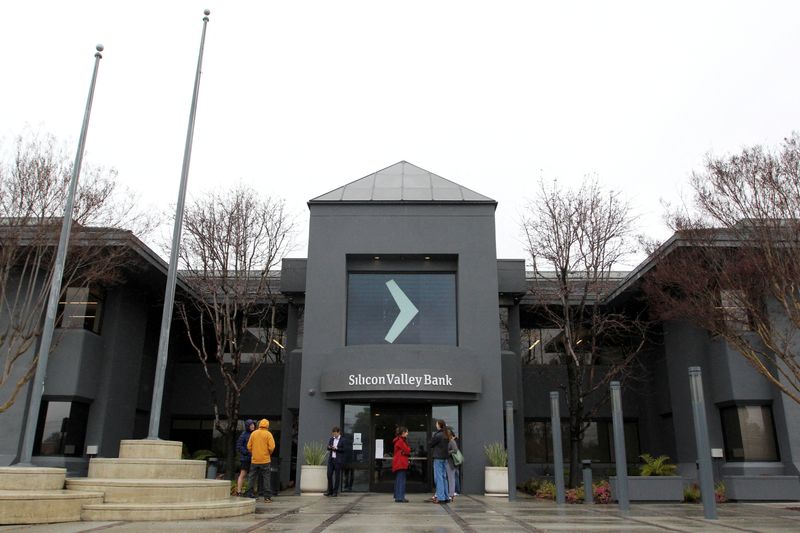By Pete Schroeder
WASHINGTON (Reuters) - Silicon Valley Bank's high level of uninsured deposits helped kick off the run that led to the bank's closing down, and now any of those depositors will need to hold their breath to see if bank regulators can recover enough to make them whole.
Friday’s announcement by the Federal Deposit Insurance Corporation that the bank was closed came with few specifics on what will happen to bank customers who held more than the $250,000 per account that is guaranteed by the government.
In prior large bank failures like IndyMac and Washington Mutual, the FDIC found other firms to take on the assets and keep deposits intact. But failing that, uninsured depositors will be left with a portion of whatever funds the FDIC can raise selling off the bank's assets.
SVB Financial Group's Silicon Valley Bank had a relatively high amount of uninsured deposits as it courted tech workers and venture capital firms. The FDIC said on Friday the amount of uninsured deposits at the bank was “undetermined,” likely complicated by the rush of bank customers to remove uninsured funds. But data submitted to the FDIC by the bank at the end of 2022 showed that 89% of its $175 billion in deposits were uninsured.
All insured deposits will be accessible in full no later than Monday morning, but the FDIC said uninsured depositors will get a “receivership certificate,” and that future dividend payments “may be made” to pay off uninsured funds as the bank’s assets are sold. Customers with uninsured deposits were told to call the FDIC.
An SVB spokeswoman referred questions to the FDIC. An FDIC spokeswoman did not respond to a request for comment.
Regulatory experts say account holders with uninsured funds are not typically individuals. Usually, accounts with such high funds are companies that need cash on hand for payroll and other expenses. But Silicon Valley Bank’s relatively well-off clientele could be the exception, and the push for full repayment was already coming from some corners.
“We must make sure all deposits exceeding the FDIC $250k limit are honored," tweeted U.S. Representative Eric Swalwell, a California Democrat. "Banking is about confidence. If depositors lose confidence on the safety of their deposits over 250k then we are in trouble.”
Beyond selling off the assets piecemeal, another possible move by the FDIC would be to find another firm to take on all or a portion of the assets. This move is typically preferred by the regulator as a smoother process that ensures depositors are minimally disrupted and usually kept whole. But that process can be lengthy, leaving uninsured depositors in the dark.

“This will likely be similar to the failure of IndyMac Bank in 2008," said Joseph Lynyak, a partner with Dorsey & Whitney who specializes in bank failures. "The FDIC closed that bank but had not already lined up an assuming bank. It took several weeks to find an investor.”
“The FDIC is likely negotiating a similar arrangement as we speak, with the result that virtually all assets and liabilities of Silicon Valley Bank will be transferred to the assuming bank in a short period of time.”